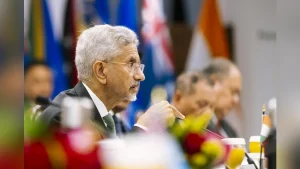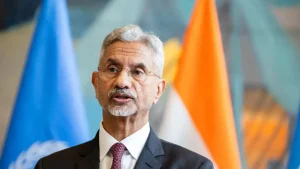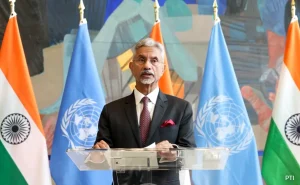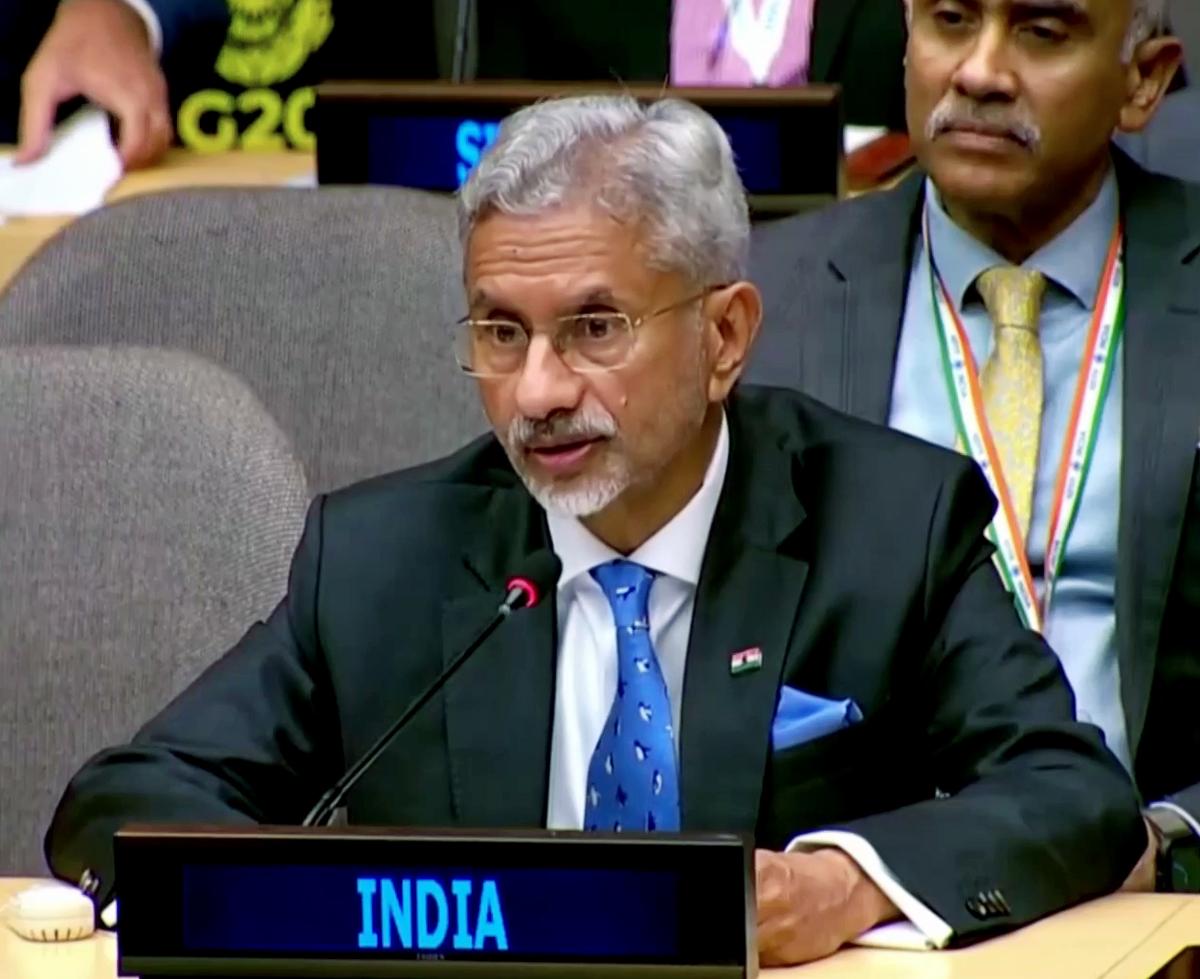New Delhi – External Affairs Minister S. Jaishankar, addressing the G20 Foreign Ministers’ meeting at the United Nations, declared that terrorism remains a “persistent threat” to peace and progress. The statement, now widely framed as Jaishankar On Terrorism, emphasized that no tolerance or accommodation should be shown to extremist activities. He argued that terrorism directly disrupts development and undermines stability, especially in already fragile economies.
Jaishankar explained that countries taking action against terrorists contribute significantly to the international community. The tone of Jaishankar On Terrorism reflects India’s consistent demand for accountability and its push for global cooperation in eradicating extremist networks.
Correlation Between Peace and Development

Highlighting the strong link between stability and prosperity, Jaishankar noted that in recent years, international peace and global development have deteriorated simultaneously. He reiterated during his speech that terrorism consistently destabilizes both domains. According to Jaishankar On Terrorism, no meaningful progress in development can occur without first ensuring peace and security across borders.
He stressed that conflicts in Ukraine and Gaza are stark reminders of how fragile global peace can become. Beyond geopolitical consequences, these conflicts have amplified the cost of food, energy, and fertiliser supplies, hitting the Global South hardest.
The Imperative of Multilateral Reform


Another core aspect of Jaishankar On Terrorism was the call to reform multilateralism. He argued that current global institutions, including the United Nations, are proving inadequate in dealing with crises. “The need for reforming multilateralism has never been greater,” he said, adding that the volatility of the political and economic situation only magnifies the urgency.
Jaishankar observed that double standards in global responses to terrorism and conflict are undermining trust. By aligning global systems with modern realities, the world can hope to counter terrorism more effectively while also ensuring sustainable development.
Strengthening G20’s Role


Focusing on collective responsibility, Jaishankar On Terrorism also highlighted the role of the G20. He urged the grouping to adopt policies that strengthen stability through diplomacy and dialogue, while firmly opposing terrorism. According to him, this approach would not only safeguard development but also enhance global energy and economic security.
He noted that the G20, with its diverse membership, is uniquely positioned to steer discussions in a constructive direction. Firm action against terrorism, paired with cooperative economic frameworks, was presented as essential for long-term peace and prosperity.
Lessons from Ongoing Conflicts
In his address, Jaishankar underscored the broader lessons drawn from conflicts in Ukraine and Gaza. As per Jaishankar On Terrorism, disruptions in supply chains have translated into rising costs for essential goods, disproportionately affecting the Global South. Nations already grappling with fragile economies have faced added pressure on logistics, food security, and energy access.
Also Read: Critical: Trump Blocks Israel West Bank Annexation Plans
He pointed out that such situations reveal the risks of double standards, where selective responses undermine trust and cohesion in the global order. The persistence of these conflicts reinforces the urgency of stronger international cooperation.
Balancing Peace and Development


Jaishankar On Terrorism carried the clear message that peace and development are inseparable. He said, “While peace enables development, threatening development cannot facilitate peace.” This statement highlighted the vicious cycle where terrorism undermines growth, and lack of growth creates further instability.
He warned against moves that increase uncertainty in fragile economies, urging instead a shift towards dialogue and diplomacy. Such a strategy, he explained, would prevent further complications and allow development to thrive in a stable environment.
The Role of Neutral Mediators
Addressing the role of mediating nations, Jaishankar On Terrorism acknowledged that in every conflict, some states can engage both sides effectively. He urged the international community to leverage these nations to achieve and sustain peace. Their participation, he argued, can help foster lasting solutions, encouraging broader buy-in from global stakeholders.
This balanced approach underlined that even as terrorism poses complex threats, collaborative diplomacy remains the most viable path forward.
A Clear Call for Global Action
The recurring theme of Jaishankar On Terrorism is that terrorism cannot be fought in isolation. He pressed for unified global action, consistent policies, and reformed institutions capable of handling modern threats. His remarks serve as a reminder that combating terrorism is not just about immediate security—it is about securing the foundations of long-term development.
Conclusion
The strong message of Jaishankar On Terrorism resonates globally: terrorism is a direct and persistent challenge to peace and prosperity. By advocating for firm resistance to extremist activities and pressing for reforms in multilateral institutions, Jaishankar has reinforced India’s position as a strong voice for both the Global South and international stability. The emphasis on dialogue, diplomacy, and cooperation reflects a vision where combating terrorism and fostering development go hand in hand.


